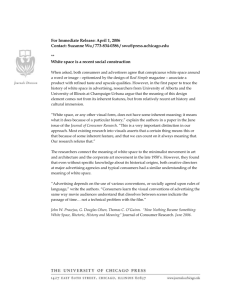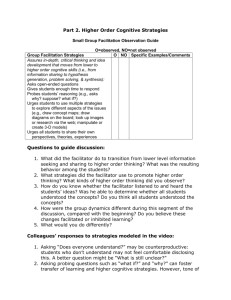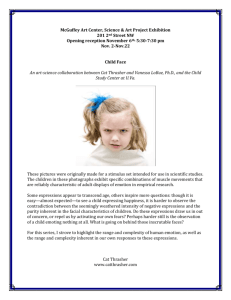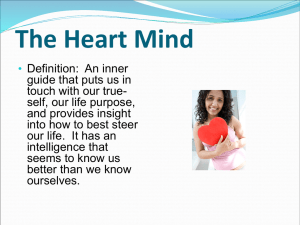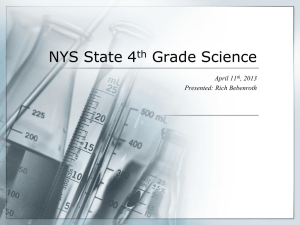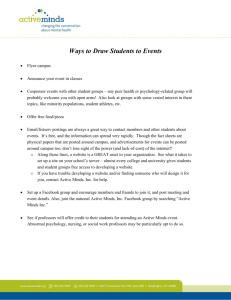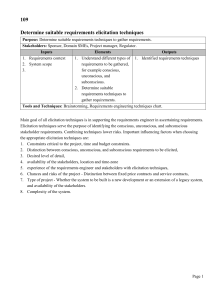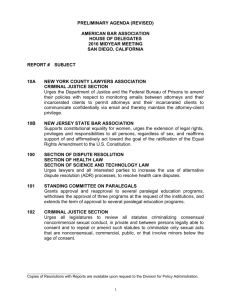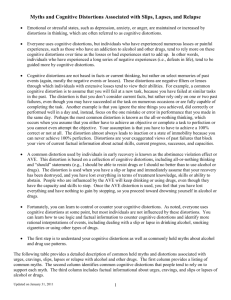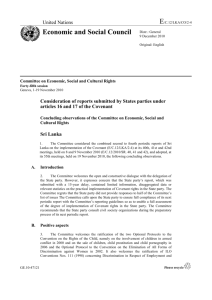Rational: thought based on logic or reasonable
advertisement
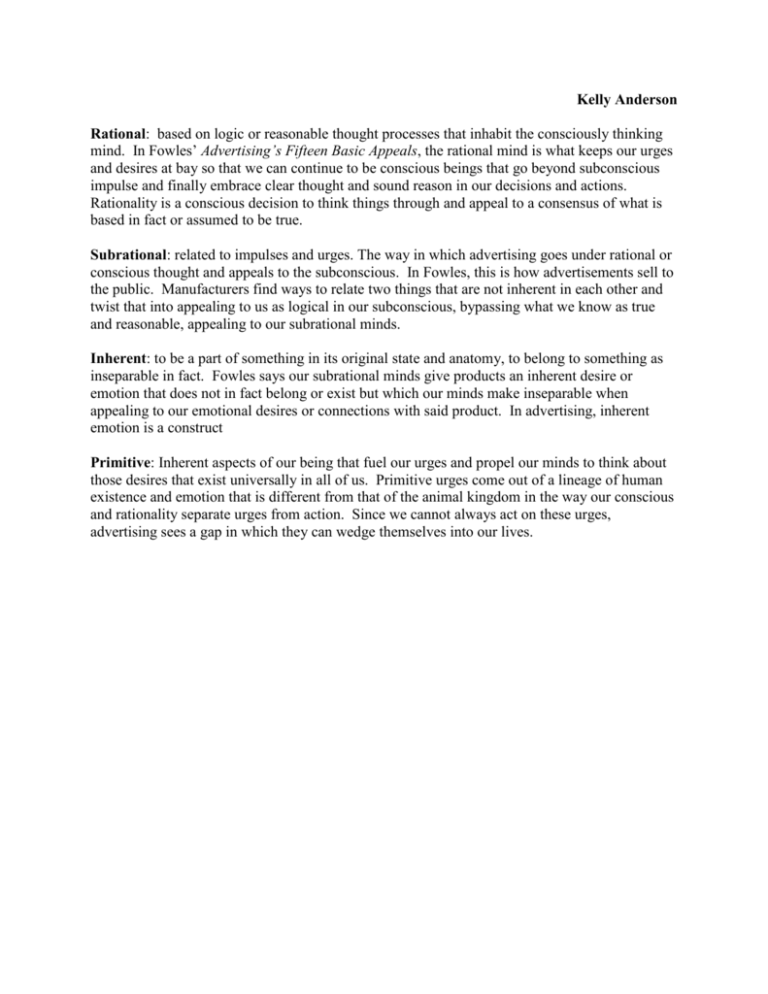
Kelly Anderson Rational: based on logic or reasonable thought processes that inhabit the consciously thinking mind. In Fowles’ Advertising’s Fifteen Basic Appeals, the rational mind is what keeps our urges and desires at bay so that we can continue to be conscious beings that go beyond subconscious impulse and finally embrace clear thought and sound reason in our decisions and actions. Rationality is a conscious decision to think things through and appeal to a consensus of what is based in fact or assumed to be true. Subrational: related to impulses and urges. The way in which advertising goes under rational or conscious thought and appeals to the subconscious. In Fowles, this is how advertisements sell to the public. Manufacturers find ways to relate two things that are not inherent in each other and twist that into appealing to us as logical in our subconscious, bypassing what we know as true and reasonable, appealing to our subrational minds. Inherent: to be a part of something in its original state and anatomy, to belong to something as inseparable in fact. Fowles says our subrational minds give products an inherent desire or emotion that does not in fact belong or exist but which our minds make inseparable when appealing to our emotional desires or connections with said product. In advertising, inherent emotion is a construct Primitive: Inherent aspects of our being that fuel our urges and propel our minds to think about those desires that exist universally in all of us. Primitive urges come out of a lineage of human existence and emotion that is different from that of the animal kingdom in the way our conscious and rationality separate urges from action. Since we cannot always act on these urges, advertising sees a gap in which they can wedge themselves into our lives.
